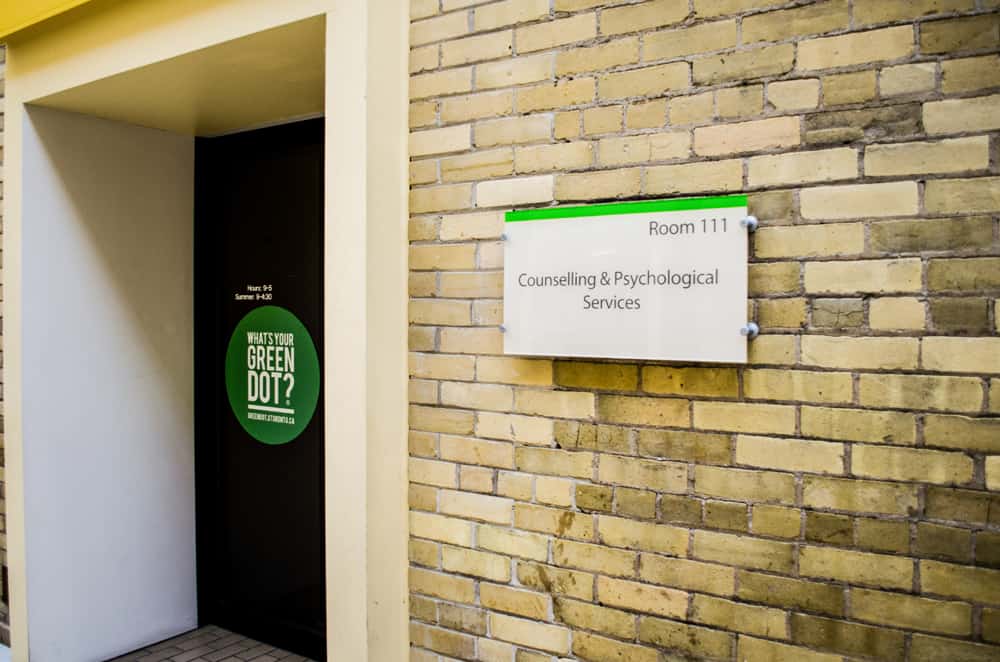Being a U of T student can be extremely stressful: endless readings, difficult tests, and the pressure of that seemingly omnipresent question: what’s next? Many stressed students seek support from the Counselling and Psychological Services (CAPS) office. CAPS, which is housed in the Koffler Student Services Centre, attempts to provide students with adequate resources to overcome mental health problems and successfully pursue their academic goals. Services include one-on-one counselling sessions, as well as group workshops that deal with topics like stress and time management. Their effectiveness, however, has been consistently criticized by student leaders, particularly due to long wait times for students.
“A major concern with CAPS is the sheer number of folks that need to utilize the services. They are in waiting lists forever, and when they need that service, they need it promptly. That is simply not happening now,” claims Brad Evoy, internal commissioner of the Graduate Students’ Union (GSU). Janine Robb, executive director of Health and Wellness Services at U of T, cited underfunding and “wasted appointments” as contributors to the delays. “We get students who make appointments and then don’t show up. Then we don’t have an opportunity to fill it in.”
Demand for mental help has increased as campaigns advocating destigamization of mental health have become more widespread across Canada and internationally. Next month, for example, U of T will be hosting a variety of workshops as part of mental health awareness month. In addition, Blue Space and Green Dot are permanent campaigns which aim to destigmatize mental distress and sexual assault respectively, while promoting an openly communicative atmosphere.
Still, U of T psychology professor John Vervaeke says that “There is such a stigmatization [around mental health]. We tend to give people the benefit of the doubt if there is a physical illness but there is a lot more suspicion surrounding mental issues, and a lot more resistance to accepting it.”
The intangible nature of mental distress, uncharacteristic of physical illness, is a major contributor to CAPS’ lack of accessibility. For example, to discern the student’s needs, a screening session via phone is necessary before counselling can take place. “There are two groups of people: the student who doesn’t have a mental health issue and is overwhelmed, and then there’s the student who does,” says Robb. “Everybody has this idea that their emotional experience needs to have an individual counselling session, and that’s not always the case.”
In some cases, those who end up receiving counselling need to wait a long time in between sessions and are unsatisfied with their services. Melissa Beauregard, former head of arts at Trinity College, cited these as the main reasons for not referring her students to CAPS. Instead, she led them to their dean of students, an alternative for undergraduates seeking help. Beauregard described the administration as “incredibly supportive.”
A student suffering from schizophrenia, who asked to remain anonymous, expressed similar sentiments: “In my case, there was a willingness to modify the curriculum and allow me to complete the course… U of T will find ways to still assist you in completing your year.” After disclosing his illness to professors, he found support and an openness to discuss his illness through academic work. “School fostered an environment where I could self-analyze and develop myself…it has been a maturing and healing process,” he says.
While mental health training for faculty is not currently mandatory at the university, it is something Robb hopes “will get traction” as more attention is brought to these issues.
But while some students’ perspective on CAPS remains bleak, the prospect for change does not. The GSU is taking proactive steps by forming a mental health committee that will work with the administration to mitigate these accessibility issues. “I’m very optimistic … so far we’ve had a positive response from Health and Wellness, who are willing to work closely with us to improve the system,” said Evoy
Robb listed the creation and expansion of various venues for students to get help, such as a drop-in counselling program at Hart House and New College, a student-run peer substance abuse program in New College, and a positive psychology workshop starting in January. In addition, there is an active effort to build strong partnerships at CAMH, so that students in need of extensive care “receive it at the right time and for the right amount.”
As for the criticisms, Robb says: “I could hire more counsellors, but I would still have a wait list because there will always be more [students needing help]. We need to promote health. Rather than being reactive, let’s be proactive.”


